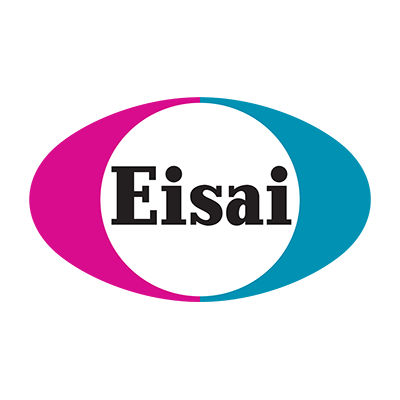Request Demo
Fierce Pharma Asia—Leqembi's slow uptake; Takeda's pipeline culls; Roche's world-first nod
09 Feb 2024
Drug ApprovalPhase 3Executive ChangePhase 1ADC
Disappointing uptake from Eisai and Biogen's Leqembi, Takeda's latest R&D cleanup, and the first approval for Roche's crovalimab made our news this week.
Eisai said uptake of its BEisai-partBiogenAlzheimer's drug, Leqembi, will likely miss an early launch target. Rochea ccrovalimab cancer candidates in its latest pipeline clear-out. Roche's subcutaneous C5 inhibitor won its world-first approval in China. And more.
As Eisain.Biogennly 2,000 Alzheimer’s disease patients in the U.S. wereLeqembiing Eisai and Biogen’s Leqembi, far below the 10,000-patient target Eisai had previously set for the end of March. About 8,000 U.S. patients are currently waiting to get on treatment, Eisai’s Alzheimer’s disease chief, Keisuke Naito, said. Eisai will be able to administer Leqembi to these patients once diagnosis and treatment pathways are in place, he said.
2. Takeda drops cancer canAlzheimer’s diseasenocytokine and CAR-Ts amid shifting tEisaient lBiogenpeLeqembiEisaiEisaiAlzheimer’s diseaseEisaiLeqembi
Takeda has axed cancerfusp alfa, which consists of two interCAR-Tsalpha-2b molecules fused to an anti-CD38 antibody. The decision was based on existing data, the evolving multiple myeloma treatment landscape and long development timelines, Takeda’s R&D head Andy Plump, M.D., Ph.D., said. The company also ended development of three phase 1 autologous CAR-T candidates.
3. Roche's subcumodakafusp alfato AstraZeneca PNH drugsinterferon alpha-2bpproval in Chinaanti-CD38 antibodymultiple myeloma
ChiRoches become the first countryAstraZeneca PNHhe’s C5 inhibitor crovalimab, a subcutaneous challenger to AstraZeneca’s infused Soliris and Ultomiris. The approval was for paroxysmal nocturnal hemoglobinuria patients age 12 and older who have not received a complement inhibitor. Crovalimab has succeeded in three phase 3 trials, including one in China.
4. Astellas' sales expectations are up for PadRochedowC5 inhibitorC5for VeozahcrovalimabAstraZenecaSolirisUltomirisparoxysmal nocturnal hemoglobinuriacomplement inhibitorCrovalimab
AstAstellass raised its peak sales estimatePadcevfizer-partnVeozahadcev following the FDA’s approval for use of the antibody-drug conjugate alongside Merck’s Keytruda in first-line bladder cancer. The company now expects sales of Padcev to peak at between 400 billion to 500 billion Japanese yen ($2.7 billion to $3.4 billion). On the flip side, Astellas has lowered its fiscal-year sales projection for newly launched menopausal drug Veozah.
Takeda’s revenues for the nine months ended Dec. 31 reached 3.21 trillion yen (about $22 billion). The company achieved flat year-over-year sales after the ADHD drug Vyvanse lost patent protection in the U.S. in August. The Japanese pharma recently launched a pen form of its popular inflammatory bowel disease drug Entyvio, which saw sales grow 7% during the nine months.
Takedamer CRISPR Tx CMO finds new home at TakedaVyvanseinflammatory bowel diseaseEntyvio
Also at Takeda, former CRISPR Therapeutics chief medical officer, Phuong Khanh Morrow, M.D., has taken on the role of head of oncology at the Japanese pharma. She succeeded Chris Arendt, Ph.D., who recently transitioned to become Takeda’s chief scientific officer.
7. WuXi AppTec defends CRISPR Therapeuticslegations' as US legislation casts shadow over certain Chinese drugmakersoncology
AftWuXi AppTecTec landed in the crosshairs of a new U.S. bill dubbed the BIOSECURE Act, the CRO giant’s leadership has penned an open letter. The company called the draft bill “misguided,” adding that it’s taking measures to correct the bill’s “unfounded and misleading claims.” The House committee behind the bill is planning to hold a hearing on China biotech competition, Axios reported.
8. I-MWuXi AppTecina footprint to complete transformation into US-based biotechAxios
As I-Mablitical tension becomes a thorny issue among biotechs with Chinese backgrounds, I-Mab has decided to separate its Chinese operations so it can become a U.S.-focused biotech. The Nasdaq-listed company will hand its work in China to an affiliate and a group of China-based investors in exchange for $80 million and the right of first negotiation on the ex-China rights to three future drug candidates.
Other News of Note:I-Mab
9. Samsung Biologics, LegoChem partner to propel ADC development and production
10.Samsung Biologics $LegoChempartner with BridgeADC on potential dwarfism drug
11. Kyowa Kirinsters compounded drug manufaBridgeBioapacity with purchase of Eugia site in New Jersey
For more details,please visit the original website
The content of the article does not represent any opinions of Synapse and its affiliated companies. If there is any copyright infringement or error, please contact us, and we will deal with it within 24 hours.
Organizations
Indications
Targets
AI Agents Built for Biopharma Breakthroughs
Accelerate discovery. Empower decisions. Transform outcomes.
Hot reports
Get started for free today!
Accelerate Strategic R&D decision making with Synapse, PatSnap’s AI-powered Connected Innovation Intelligence Platform Built for Life Sciences Professionals.
Start your data trial now!
Synapse data is also accessible to external entities via APIs or data packages. Empower better decisions with the latest in pharmaceutical intelligence.





